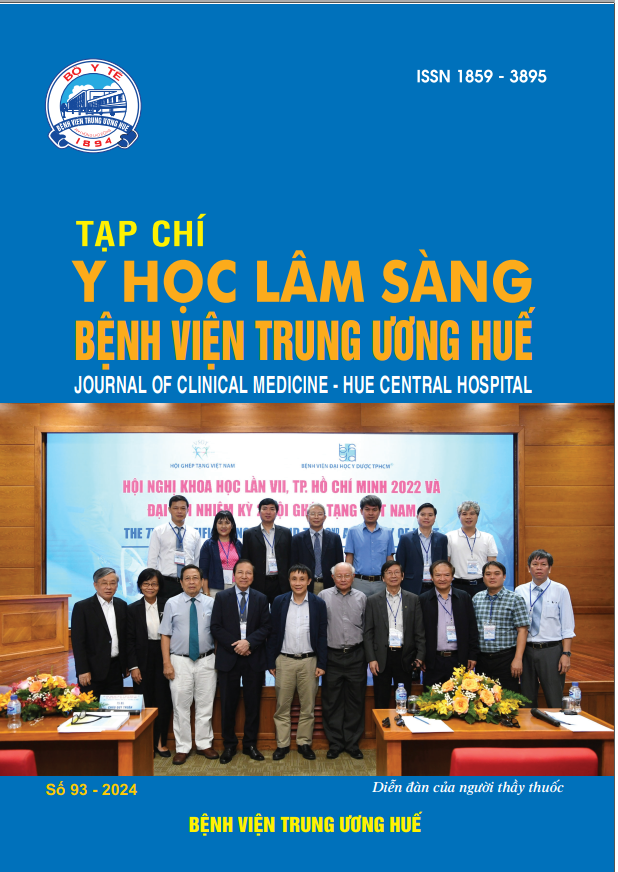Dengue xuất huyết nặng ở bệnh nhân ghép thận: nhân một trường hợp tại Bệnh Viện Quân Y 103
DOI: 10.38103/jcmhch.93.13
Abstract
Background: Hemorrhagic dengue is a common epidemic in Vietnam that occurs every year, most of which are mild. Kidney transplant patients with dengue hemorrhage may have different symptoms and severity compared to the general population.
Methods: To describe a case of severe Dengue hemorrhage in the postoperative period after kidney transplantation was successfully treated.
Results: A female, 39 years old, received a kidney transplant from an living unrelated donor. After transplantation, kidney function recovered well, blood creatinine returned to normal range within the first week. In the 2nd week after transplantation, the patient had severe bleeding: large subcutaneous hemorrhages, large hemorrhages in both sides of abdominal wall muscles, severe gastrointestinal bleeding, severe thrombocytopenia lasting more than 7 weeks, severe anemia, acute kidney injury, acute liver injury. The patient has received fluids and electrolytes replacement, have transfused of 54 units of red blood cells, 46 units of platelets, 16 units of fresh frozen plasma (total of 116 units of blood products); renal replacement therapy (15 sections); Antibacterial, antifungal antibiotics and antiviral CMV were given. The patient was gradually recovered after 2 months of continuous treatment, with kidney function returning to normal range. Conclusions: Hemorrhagic dengue fever can cause severe multi-organ dysfunction in patients after kidney transplant, treatment is very difficult, and the risk of death is high. However, in severe cases, patients can still survive with fully recovered kidney function.

